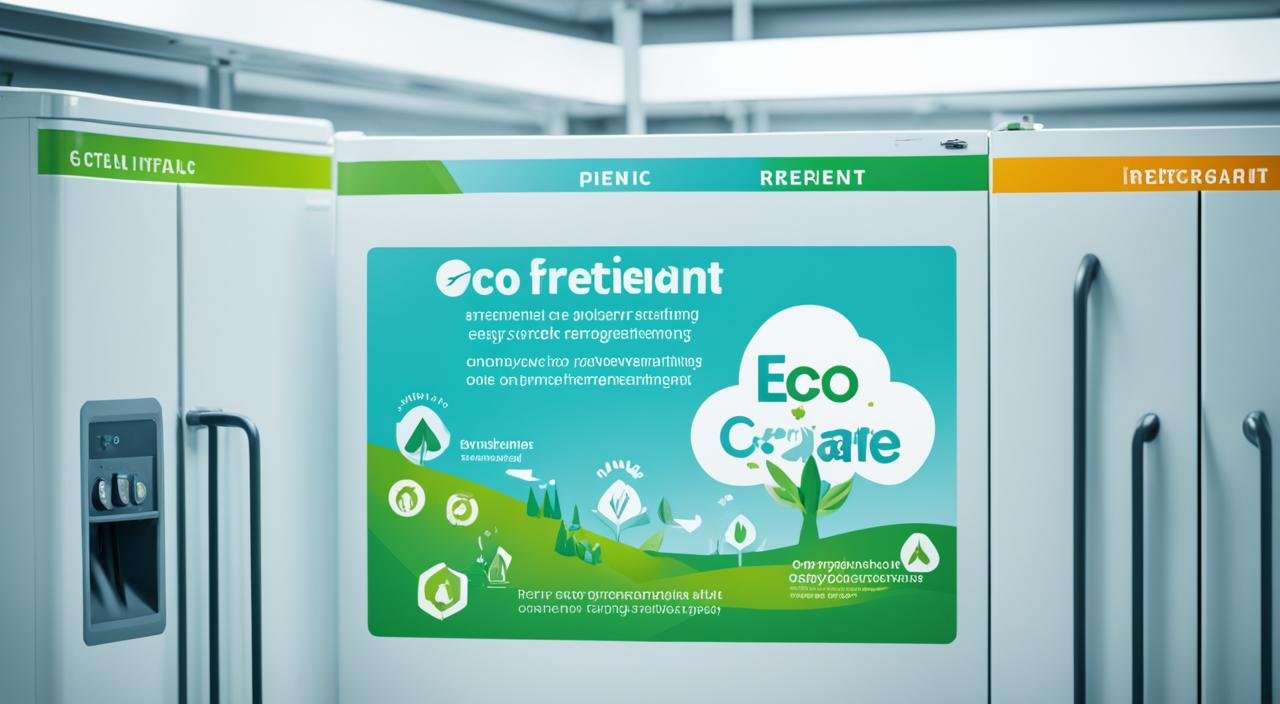Eco friendly resin has become a popular choice among crafters who are looking to reduce their environmental impact. Conventional eco friendly 3D printing resin, primarily sourced from petroleum-based materials, have raised concerns due to their inability to biodegrade. Plant-based resins, also known as bio-resins, offer a more sustainable alternative as they are obtained from renewable sources such as soybeans, sugarcane, and corn. These eco friendly resins for 3D printing are not only biodegradable but also minimize the carbon footprint of additive manufacturing. Additionally, they have low odor, making them suitable for indoor use. Elegoo is a leading brand in the plant-based resin movement, offering a range of sustainable resin options for 3D printing.
Key Takeaways:
- Eco friendly resin is a sustainable alternative to conventional petroleum-based 3D printing resin.
- Plant-based resins are sourced from renewable materials like soybeans, sugarcane, and corn.
- These resins are biodegradable and minimize the carbon footprint of additive manufacturing.
- Eco friendly resins have low odor, making them suitable for indoor use.
- Elegoo offers a range of sustainable resin options for 3D printing.
Reducing Environmental Impact through Eco-Friendly Resins
Eco-friendly resins play a significant role in reducing the environmental impact of additive manufacturing processes. These resins are a sustainable alternative to conventional petroleum-based resins and offer a more eco-friendly approach. By evaluating key criteria such as biodegradability and renewable sourcing, eco-friendly resins can minimize the carbon footprint associated with their production and disposal.
Plant-based resins are particularly promising in this regard, as they are derived from renewable sources like soybeans, sugarcane, and corn. These materials have the potential to make a fleeting impact on the environment, reducing concerns about persistent pollution. By choosing eco-friendly resins, crafters can contribute to a cleaner and greener planet.
The Advantages of Eco-Friendly Resins:
- Reduced carbon footprint
- Renewable sourcing
- Biodegradability
- Minimized environmental impact
“Eco-friendly resins offer crafters an opportunity to create beautiful objects while minimizing their environmental impact.”
– Environmental Crafters Association
A Visual Comparison of Carbon Footprints:
| Conventional Resins | Eco-Friendly Resins | |
|---|---|---|
| Carbon Footprint | High | Low |
| Biodegradability | Poor | Excellent |
| Renewable Sourcing | No | Yes |
In Summary:
By embracing eco-friendly resins, crafters can actively contribute to reducing the environmental impact of their creations. Plant-based resins, in particular, offer a sustainable alternative that minimizes carbon footprints and promotes biodegradability. Making the switch to eco-friendly resins aligns with the principles of eco-conscious crafting and ensures a greener future for our planet.
Selecting Criteria for Eco-Friendly Resins
When choosing eco-friendly resins, it is important to consider several key criteria that contribute to their sustainability. These criteria include biodegradability and renewable sourcing, which play a significant role in minimizing environmental impact and supporting a greener future.
Biodegradability: Biodegradability refers to the resin’s ability to break down naturally and reintegrate into the environment without causing harm. Conventional resins can persist for decades, contributing to plastic waste and pollution. In contrast, plant-based resins have a unique advantage as they can decompose over time. This characteristic makes them more environmentally friendly, reducing concerns about long-term environmental impact.
Renewable Sourcing: The sourcing of materials used in eco-friendly resins is another crucial aspect of their environmental compatibility. By obtaining these materials from renewable sources such as corn and sugarcane, the production of these resins remains sustainable. This approach reduces reliance on finite fossil fuels and contributes to the conservation of natural resources. Crafters who prioritize renewable sourcing can be confident in their choice of eco-friendly resins and their contribution to a greener planet.
To summarize, when selecting eco-friendly resins, crafters should prioritize biodegradability and renewable sourcing. These criteria ensure that the chosen resins have minimal environmental impact and align with sustainable practices. By making informed choices, crafters can create beautiful objects while minimizing their carbon footprint.
| Eco-Friendly Resin Criteria | Advantages |
|---|---|
| Biodegradability | – Naturally breaks down over time – Reduces plastic waste and pollution – Minimizes long-term environmental impact |
| Renewable Sourcing | – Uses materials from renewable sources – Reduces reliance on finite fossil fuels – Contributes to the conservation of natural resources |
Low Odor Resins: A Comfortable and Indoor-Friendly Choice
Low odor resins offer crafters a more pleasant and indoor-friendly experience compared to traditional resins. These resins are designed to minimize the release of strong odors and volatile organic compounds (VOCs), ensuring user comfort and reducing the risk of health concerns in confined spaces.
Unlike conventional resins that emit noxious fumes, low odor resins provide a more agreeable printing journey. Crafters can confidently use these resins for their indoor 3D printing setups without worrying about unpleasant odors or harmful substances.
Whether you’re printing within your residence, workplace, or educational institution, low odor resins create a safer and more comfortable environment. By choosing indoor-friendly resins, you can align with the values of sustainable design while enjoying a more enjoyable crafting experience.
The Rise of Plant-Based Resins
Plant-based resins have emerged as a sustainable alternative within the world of 3D printing. Unlike conventional resins derived from petrochemical sources, these resins can be sourced from renewable resources such as soybeans, sugarcane, and corn. Their key defining feature is their biodegradability, offering a solution to the persistent plastic waste problem. By naturally breaking down over time, plant-based resins reduce their environmental impact and contribute to a more sustainable manufacturing process. These resins also align with the principles of the circular economy by using crops like corn and sugarcane to create a closed-loop system that minimizes waste and resource depletion.
- Biodegradable: Plant-based resins have the ability to naturally decompose, reducing plastic waste and minimizing environmental pollution.
- Renewable Sourcing: Derived from crops like soybeans, sugarcane, and corn, these resins offer a sustainable alternative to petrochemical-based materials.
- Sustainability: By using agricultural crops in the manufacturing process, plant-based resins contribute to a closed-loop system that reduces resource depletion.
The rise of plant-based resins signifies a shift towards more eco-friendly and sustainable practices in 3D printing. Crafters and manufacturers can embrace these materials to create innovative products while minimizing their environmental impact.
Advantages of Plant-Based Resins in 3D Printing
Embracing plant-based resins in 3D printing offers numerous advantages that align effectively with environmental and sustainable ideologies. One significant advantage is the reduction in the carbon footprint associated with the production of these resins. Traditional resin production heavily relies on finite fossil fuels, contributing to greenhouse gas emissions. In contrast, plant-based resins tap into renewable resources, curbing ecological repercussions and promoting sustainability. These resins also align with the principles of the circular economy by transforming agricultural waste into useful materials and minimizing strain on landfills. By choosing plant-based resins, crafters can contribute to a greener future for 3D printing.
Plant-Based Resins in 3D Printing Reduce the Carbon Footprint:
- Traditional resin production relies on finite fossil fuels
- Plant-based resins tap into renewable resources
- Reduces greenhouse gas emissions
Plant-Based Resins Align with the Circular Economy:
- Transforms agricultural waste into useful materials
- Minimizes strain on landfills
- Promotes sustainability
By choosing plant-based resins in 3D printing, crafters can enjoy these advantages while creating with a reduced environmental impact. The following table summarizes the benefits of plant-based resins in comparison to traditional resins:
| Advantages | Plant-Based Resins | Traditional Resins |
|---|---|---|
| Reduced Carbon Footprint | ✔ | ✘ |
| Renewable Resources | ✔ | ✘ |
| Circular Economy | ✔ | ✘ |
Plant-based resins offer a sustainable and environmentally friendly alternative for crafters in the 3D printing industry. By reducing carbon emissions and utilizing renewable resources, these resins contribute to a greener future and support the principles of the circular economy. Making the switch to plant-based resins is a step towards a more sustainable 3D printing industry.
Elegoo: Pioneering the Plant-Based Resin Movement
Elegoo is at the forefront of the plant-based resin movement, setting the standard for sustainable materials and eco-friendly innovation. With a strong commitment to the environment, Elegoo offers a range of resin options that prioritize sustainability without compromising on performance or quality.
Their plant-based resin lineup showcases the immense potential of bio-resins in 3D printing. These innovative materials not only offer a sustainable alternative to traditional petroleum-based resins but also demonstrate their ability to unleash the full potential of additive manufacturing.
By providing access to sustainable materials, Elegoo empowers 3D printing enthusiasts and professionals alike to contribute to a greener future. With their dedication to developing high-quality plant-based resins, Elegoo has positioned itself as a trailblazer in the industry, driving positive change and innovation.
The Problem with Epoxy Resin
Epoxy resin, a petroleum product, poses environmental concerns due to its chemical makeup and inability to biodegrade. The manufacturing and disposal of epoxy resin contribute to the carbon footprint associated with petroleum extraction and refining. Additionally, the disposal of partially empty bottles of epoxy resin can result in improper waste management, leading to pollution. Traditional epoxy resins are also composed of chemicals that may emit strong odors and release volatile organic compounds (VOCs), posing health risks in confined spaces. These factors make epoxy resin a less sustainable choice for crafting.
To understand the environmental impact of epoxy resin, it is essential to consider its petroleum-based origins. The production of epoxy resin relies on the extraction and refining of finite fossil fuel resources, contributing to greenhouse gas emissions and exacerbating climate change. Moreover, the chemical composition of epoxy resin makes it resistant to decomposition, further worsening its environmental implications. As a result, epoxy resin waste persists indefinitely in landfills and ecosystems, polluting the environment and contributing to plastic waste accumulation.
The improper disposal of epoxy resin waste exacerbates its environmental impact. Partially empty bottles of epoxy resin, if not disposed of properly, can end up in landfills or water bodies, where they release toxic chemicals and pollutants. This improper waste management not only harms the environment but also poses risks to wildlife and human health. The accumulation of non-biodegradable epoxy resin waste contributes to the global plastic pollution crisis, which has far-reaching consequences on ecosystems and biodiversity.
In addition to its environmental impact, traditional epoxy resins emit strong odors and release volatile organic compounds (VOCs). These chemicals can negatively affect air quality and human health, particularly in confined spaces where ventilation is limited. The exposure to VOCs from epoxy resin can cause respiratory irritation and other health problems. This makes epoxy resin a less desirable choice for indoor crafting projects and highlights the importance of considering alternatives that prioritize environmental sustainability and user safety.
| Epoxy Resin | Eco-Friendly Alternatives |
|---|---|
| Derived from petroleum | Sourced from renewable materials |
| Chemically resistant to biodegradation | Biodegradable and environmentally compatible |
| Contributes to carbon footprint | Minimizes carbon footprint |
| Improper waste disposal leads to pollution | Properly managed waste reduces environmental harm |
| Emits strong odors and VOCs | Low odor and non-toxic |
Epoxy resin’s environmental impact and limited biodegradability make it a less sustainable choice for crafting. To minimize their ecological footprint, crafters can explore eco-friendly alternatives that prioritize renewable sourcing, biodegradability, and low toxicity. By making informed decisions and opting for more sustainable materials, crafters can contribute to a greener and more environmentally conscious crafting industry.
Alternatives to Epoxy Resin
When looking for alternatives to epoxy resin, it is essential to consider eco-friendly resins made from sustainable materials. While there are several options available, it is crucial to choose resins that align with sustainability principles. Some alternatives to epoxy resin include biodegradable resins made from soybeans, sugarcane, and corn. These materials offer similar properties to epoxy resin while being more environmentally friendly. Another alternative is to explore different crafting methods and materials, such as glass or upcycled materials. By choosing eco-friendly alternatives, crafters can create beautiful objects while minimizing their environmental impact.
Comparison of Alternative Resins
| Resin Type | Key Features | Environmental Impact |
|---|---|---|
| Biodegradable Resins | – Made from sustainable sources – Similar properties to epoxy resin | – Biodegradable, reducing environmental impact |
| Glass | – Transparent and versatile material – Provides a unique aesthetic | – Low environmental impact – Recyclable |
| Upcycled Materials | – Utilizes existing materials – Provides a creative and unique design | – Minimizes waste – Reduces reliance on new resources |
By exploring these alternatives and considering their benefits and environmental impact, crafters can make informed choices that contribute to a more sustainable future for crafting.
Greener Alternatives for Craft Supplies
The transition to eco-friendly crafting involves considering greener alternatives for various craft supplies. By opting for these greener alternatives, crafters can create while being mindful of the materials they use. Here are some options to explore:
- Eco-Friendly Papers: Consider using papers made from recycled or sustainably sourced materials. These papers minimize the demand for new wood pulp and reduce waste.
- Eco-Friendly Woods: Instead of using conventional woods, opt for eco-friendly woods such as FSC-certified or reclaimed wood. These woods are sourced sustainably and help preserve forest ecosystems.
- Eco-Friendly Paints: Choose natural and non-toxic paints, stains, and glazes for your crafting projects. These alternatives minimize the release of harmful chemicals into the environment.
- Eco-Friendly Craft Foam: Explore eco-friendly craft foam made from recycled or bio-based materials. This foam is an eco-conscious substitute for conventional foam options.
By incorporating these greener alternatives into your crafting practice, you can reduce your environmental impact and contribute to a more sustainable future.
| Supplies | Eco-Friendly Papers | Eco-Friendly Woods | Eco-Friendly Paints | Eco-Friendly Craft Foam |
|---|---|---|---|---|
| Materials | Recycled or sustainably sourced | FSC-certified or reclaimed | Natural and non-toxic | Recycled or bio-based |
| Benefits | Reduces demand for new wood pulp | Preserves forest ecosystems | Minimizes release of harmful chemicals | Eco-conscious alternative to conventional foam |
| Environmental Impact | Reduces waste and deforestation | Reduces deforestation and resource depletion | Minimizes air and water pollution | Reduces reliance on petroleum-based materials |
Conclusion
Eco-friendly crafting and making sustainable choices are essential for reducing our environmental impact. By opting for plant-based resins and other eco-friendly alternatives, crafters can actively contribute to creating a cleaner and greener planet. The rise of plant-based resins in 3D printing provides a promising solution to the plastic waste problem, offering a sustainable alternative to conventional petroleum-based resins. Elegoo, a leading brand in the plant-based resin movement, demonstrates the potential of using sustainable materials in additive manufacturing.
By considering greener alternatives for craft supplies and materials, crafters can create beautiful objects while minimizing their carbon footprint. It is important to continue exploring and adopting eco-friendly practices in crafting to ensure a more sustainable future. Alongside plant-based resins, there are various eco-friendly options available, such as using recycled or sustainably sourced papers, eco-friendly woods, non-toxic paints, and eco-friendly craft foam made from recycled or bio-based materials.
By embracing eco-friendly crafting and sustainable choices, we can reduce our impact on the environment and contribute to a more sustainable world. Let us continue to prioritize eco-friendly practices, such as opting for plant-based resins and other sustainable materials, in our crafting endeavors. Together, we can make a difference and create a brighter future for generations to come.
FAQ
What are eco-friendly resins?
Eco-friendly resins are sustainable alternatives to conventional resins that minimize environmental impact. They are typically derived from renewable sources such as plant materials and offer benefits such as biodegradability and reduced carbon footprint.
What are plant-based resins?
Plant-based resins, also known as bio-resins, are a type of eco-friendly resin made from renewable plant materials like soybeans, sugarcane, and corn. These resins are biodegradable and offer a sustainable alternative to petroleum-based resins.
Why are plant-based resins considered eco-friendly?
Plant-based resins are considered eco-friendly because they can biodegrade over time, reducing concerns about plastic waste. They are also sourced from renewable plant materials, minimizing reliance on finite fossil fuels and reducing the carbon footprint associated with resin production.
What are the criteria for selecting eco-friendly resins?
When selecting eco-friendly resins, it is important to consider their biodegradability and renewable sourcing. Resins that can naturally decompose and are made from renewable resources help minimize environmental impact and contribute to a more sustainable manufacturing process.
Why are low odor resins important?
Low odor resins are important because they minimize the release of strong odors and volatile organic compounds (VOCs), making them suitable for indoor use. This enhances user comfort during printing and reduces the risk of health concerns in confined spaces.
How do plant-based resins contribute to a greener future?
Plant-based resins contribute to a greener future by offering a sustainable alternative to petroleum-based resins. They use renewable resources, reduce plastic waste through biodegradation, and help minimize the carbon footprint associated with resin production.
What are the advantages of plant-based resins in 3D printing?
Plant-based resins in 3D printing offer advantages such as reduced carbon footprint, renewable sourcing, and the potential to create a closed-loop system through the use of agricultural waste. They are a more sustainable choice for additive manufacturing.
What makes Elegoo a pioneer in the plant-based resin movement?
Elegoo is a leading brand in the plant-based resin movement because of its commitment to eco-friendly innovation. They offer a range of sustainable resin options for 3D printing, providing access to high-quality plant-based resins and empowering users to contribute to a greener future.
Why is epoxy resin considered less sustainable?
Epoxy resin is considered less sustainable because it is a petroleum-based product that does not biodegrade. Its production and disposal contribute to the carbon footprint associated with petroleum extraction and refining, as well as the risk of improper waste management.
What are alternatives to epoxy resin?
Alternatives to epoxy resin include eco-friendly resins made from plant materials like soybeans, sugarcane, and corn. These resins offer similar properties to epoxy resin while being more environmentally friendly. Other alternatives include exploring different crafting methods and materials, such as glass or upcycled materials.
What are greener alternatives for craft supplies?
Greener alternatives for craft supplies include using eco-friendly papers made from recycled or sustainably sourced materials, eco-friendly woods such as FSC-certified or reclaimed wood, natural and non-toxic paints, stains, and glazes, and eco-friendly craft foam made from recycled or bio-based materials.





